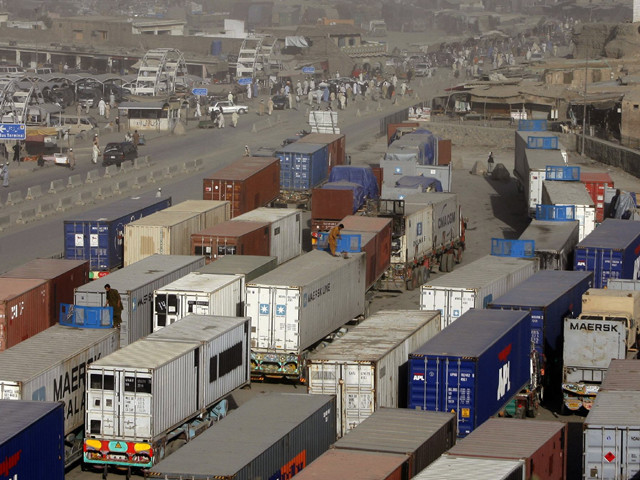Transporting goods to Afghanistan: NLC under fire in tax ombudsman’s report to SC
Report expresses shock that no tracking system is in place to check Isaf cargo movement

According to the report, even though NLC bags 90 per cent share in the transportation business of commercial and Isaf/Nato transit cargo, it doesn’t ensure safety and security of the cargo.
NLC uses 100 per cent private transport for Isaf/Nato transit cargo and only 30 per cent owned and 70 per cent privately hired vehicles for commercial category of transit cargo. In case of privately hired vehicles, NLC simply gets documents signed from the transporter without ensuring safety and security of the cargo.
Moreover, it says, NLC sublets transportation of Afghan cargo which at times is further sublet to other transporters up to three or four tiers. During 2007-08 as many as 52 cases, all relating to privately-hired vehicles, were reported where Cross Border Certificates were not produced, the report said. This vulnerability is further corroborated by the fact that accused Muhammad Sohail in the Isaf container scam case got the vehicles of his choice authorised by NLC to transport transit cargo of Lunar Products of Kabul.
The report highlights the point that it must be determined through a detailed investigation how many other such authorisations were given by NLC to vehicles belonging to other unregistered transporters and how many of them misused the transit facility.
The ombudsman’s office expressed shock that no tracking system whatsoever was being employed to keep a check on the Isaf cargo. “Yet another serious dimension of mishandling the transport coordination by NLC is that NLC itself being a bonded carrier was required to have tracking system for live monitoring of the vehicles movement. Being fully aware of this condition, NLC should not have authorised private sector transport that did not have state-of-the-art tracking system fitted in their vehicles to operate.”
The report also questioned the quality of the container data maintained by NLC. The report said that data provided to the ombudsman’s office for transport of containers from Karachi to border stations had no container number, date, time, truck number, etc., either for departure from Karachi, arrival at border customs-station or cross border. “NLC data was also a total disappointment,” it said.
Types of transit
According to the report, post-9/11, two distinct types of cargoes have been flowing through Pakistan: The Afghan Transit Trade-related Afghan commercial cargo and the non commercial or military cargo of various governments operating in Afghanistan. Military or non commercial supplies to Afghanistan were further divided into two distinct types, based on the manner these were to be processed by the Customs: US Military cargo and Isaf/Nato cargo
Railways share less than 10 per cent
The ombudsman’s report says that the Customs allows transport of the commercial and non-commercial transit cargo through Pakistan Railways and NLC respectively. However, the US/Isaf/Nato cargo for transit to Afghanistan is allowed transportation through private sector on the recommendation of Foreign Office subject to No Objection Certificate by NLC.
The vehicles selected by US are from reputable transport companies and the containers are moved under Radio-frequency identification (RFID) chip seals from Karachi ports to final destinations in Afghanistan. Most vehicles used for the purpose have tracking devices for live monitoring of their position and movement en-route.
The private vehicles used by Isaf/Nato, however, are not of the same standard as the US. Nor are they fitted with tracking devices. Although they are allowed to travel up to destinations in Afghanistan, their cargo is not fitted with RFID seals. This, according to the report, explains why there are hardly any cases of en-route pilferage under the cover of US military cargo. However, a source in the ombudsman’s office says that one can’t say that there is 100 per cent no pilferage in the US military cargo. “There must be a small percentage of cases that involve US military cargo, which somebody must also look into,” the report said.
The share of Pakistan Railways in the transport of commercial cargo is less than 10% as private sector trucks authorized by NLC are taking the lion’s share to transport transit cargo of both commercial and ISAF / NATO categories.
Published in The Express Tribune, January 21st, 2011.



















COMMENTS
Comments are moderated and generally will be posted if they are on-topic and not abusive.
For more information, please see our Comments FAQ